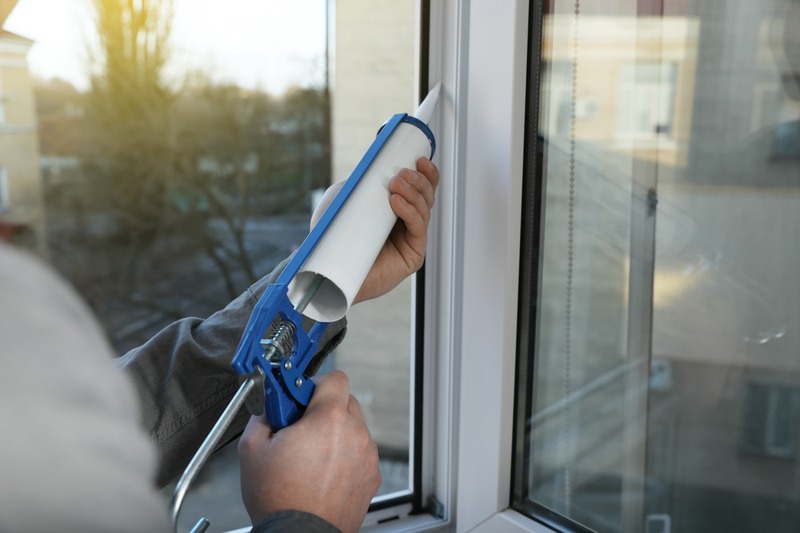When it comes to selecting new doors for your home or commercial space, compatibility with existing structures is a factor that often flies under the radar. However, making sure that your new door aligns with your building’s current setup can save both time and money, to say nothing of the headaches that misaligned doors can cause.
Enhancing Aesthetic Harmony
Choosing a new door isn’t just about functionality—it’s also about enhancing the visual appeal of your space. Like residential windows in Prescott, your doors should complement the design elements already present in your building, creating a harmonious aesthetic throughout.
-
Color Coordination: Your new doors should match, or at least not clash with, the existing color palette. A mismatched door can stick out like a sore thumb.
-
Material Match: Whether you have wood, metal, or glass finishes, choosing a door of complementary material helps to create a seamless look.
-
Architectural Style: Make sure the style of your new door reflects the architecture of your property, whether it’s modern, classic, or eclectic.
Streamlining Installation Process
The installation process can be complicated if the new door isn’t compatible with existing structures. Here are some reasons why compatibility should be considered to streamline the installation process.
-
Measurement Accuracy: Ensures you’re measuring against the right benchmarks, reducing errors.
-
Less Structural Adjustment: Avoid unnecessary carpentry work, which can add to labor costs.
-
Saves Time: When things fit as they should, the installation is more straightforward and takes less time to complete.
Maintaining Structural Integrity
Your building’s structural integrity can be compromised if new doors don’t fit well. A poorly fitted door may cause undue stress on the frame, leading to possible damage over time.
Here’s why a door’s fit matters:
-
Weight Distribution: Improper weight distribution can affect the door frame and, eventually, the adjoining walls.
-
Alignment Issues: Misaligned doors often experience functionality issues, such as difficulty opening and closing.
-
Material Stress: Incompatible doors can put stress on the materials, causing them to weaken over time.
Optimizing Energy Efficiency
Energy efficiency is a huge concern nowadays, both for environmental and financial reasons. Having doors that fit correctly can significantly impact your energy bills.
-
Insulation Compatibility: A door well-fitted respects the existing insulation, ensuring that it doesn’t leave gaps or openings.
-
Seal Performance: Ensure proper sealing around the edges to prevent drafts.
-
Conserving Energy: Minimized air leakage leads to less energy being wasted, making your building eco-friendly.
Reducing Maintenance Costs
Incompatible installations usually result in higher maintenance costs over time. A door that doesn’t fit perfectly will lead to increased wear and tear.
-
Wear and Tear: Misalignments often require frequent adjustments, extending to minor repairs.
-
Frequent Repairs: You might find yourself replacing parts or even the entire door sooner than expected.
-
Preventing Future Issues: By choosing a compatible door from the start, you can avoid potential headaches in the future.
Maintaining Safety and Security
The safety and security of your property can be compromised with a badly fitted door. Here’s why compatibility with existing structures plays a vital role:
-
Structural Compatibility: Ensures that the door locks and hinges align perfectly, optimizing security.
-
Durability and Strength: A compatible door enhances durability and strength, minimizing security risks.
-
Reliability: Offers a reliable barrier that functions precisely as intended.
Integrating with Smart Home Features
Smart homes are the rage these days, and a modern door can complement these systems, but only if it pairs well with existing structures.
-
Smart Locks: Integrating new doors with smart locks requires compatibility in terms of space and structure.
-
Home Automation: Doors that work well with automation features require precise compatibility to ensure that sensors and gadgets function correctly.
-
Remote Access: When a door aligns with existing structures, remote operation and monitoring systems can be employed efficiently.
The Impact on Property Value
Investing in doors compatible with existing structures can positively impact your property’s value. Real estate professionals often stress the importance of doors that match the home’s overall aesthetic and structural integrity.
-
Buyer Appeal: Prospective buyers are likely to notice and appreciate the effort made to ensure the door’s compatibility.
-
Enhanced Property Listings: Making these simple improvements can make for a more appealing property listing.
-
Increased Buyer Confidence: Knowing that every aspect of the property is well-integrated inspires confidence in potential buyers.
Navigating Permitting and Compliance
Legal compliance and permitting can become a hassle when your new door doesn’t match your building’s current structure.
-
Understanding Codes: Often, there are legal codes that specify compatibility requirements.
-
Certification: A certified installation generally requires that all components, including the doors, match an existing setup.
-
Hassle-Free Inspections: Compatible installations usually pass inspections without hiccups.
Adapting to Environmental Conditions
Doors that harmonize with environmental conditions help keep your space comfortable throughout the year.
-
Weather Resistance: Adaptability to local weather patterns keeps your building both secure and comfortable.
-
Moisture Barriers: Selecting doors with proper moisture barriers helps prevent structural damage.
-
Heat Retention: A well-fitted door helps maintain optimal interior temperatures during both hot and cold seasons.
When looking at sliding doors Prescott, for instance, it’s especially crucial to consider the unique environmental challenges that affect door performance.
The Emotional and Psychological Elements
Lastly, never underestimate the emotional and psychological benefits of having a door that fits well with your existing structures. How your home feels can affect your mood and overall sense of well-being.
-
Comfort Level: A door that fits snugly enhances the comfort level of a space, making it more inviting.
-
Peace of Mind: Knowing that everything is perfectly aligned provides a sense of peace.
-
Self-Satisfaction: It leaves you confident in a home that’s durable, stylish, and well-put-together.
In Windows and More, you’ll find that these emotional and psychological elements play a crucial role in the selection process, ensuring that aesthetic and functional qualities contribute positively to the ambiance of the living space.
Final Thoughts
If you’re considering updating your doors, especially in areas with unique architectural nuances like residential windows, remember that compatibility with existing structures is vitally important. This not only affects aesthetic harmony and energy efficiency but also plays a role in safety, property value, and personal satisfaction.




